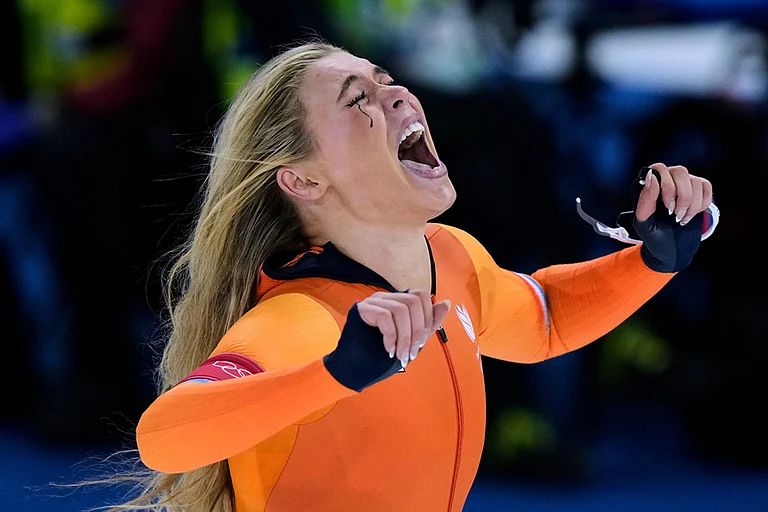Joe Biden, the incumbent president of the United States, made a historic decision to retract his name from the presidential race against Republican Donald Trump, becoming the first president to bow out of a re-election bid since Lyndon Johnson in 1968. His decision, expressed through a sombre statement while he recovered from Covid-19 at his Miami beach house, has been dubbed by many as an act of selflessness. With Biden out, the Democrats have paved the way for yet another landmark moment as Kamala Harris now joins the race to the White House.
In more than two centuries of American democracy, voters have only ever elected one Black president, Barack Obama, and never a woman. Harris’s nomination – that too, against Donald Trump – will not be just any gamble for the Democrats. As a Black and South Asian woman, she now has the task of breaking through the hardest ceiling in US politics.
Racism in US elections
America has a history of racial discrimination, mob lynchings and police killings. Studies even showed that one of the strongest determining factors in Trump’s election in 2016 and 2020 was not voters’ economic fears or their commitment to individual freedom – it was the supporters’ racial resentment, despite years of the civil rights movement to abolish legalised racial segregation, discrimination, and disenfranchisement in the country. It is rooted in the centuries of slavery, Jim Crow laws and other systematic prejudices against the Black people.
Even in 2008, when Barack Obama became the nation’s first Black president, a moment that was widely celebrated, the racial resentment among White Americans increased who found it hard to swallow on a day-to-day basis.
Since the universal suffrage movement, the United States has certainly made progress in expanding and protecting the rights for African Americans, as well as of women. However, the entrenched inequality continues to corrupt American democracy and preserve racial barriers.
In the 2012 elections, the voter turnout among Black citizens exceeded that of white citizens for the first time in American history. However, this was quickly followed by two upsetting US Supreme Court rulings – Shelby County v. Holder (2013) and Husted v. A. Philip Randolph Institute (2018) – that overturned voting rights protections and threatened to undo decades of progress toward equal rights for all.
Women in US elections
For women, the suffrage movement started many years ago but more than a century after the 19th Amendment was ratified, giving women the right to vote, many believe the country has not gone far enough in giving equal opportunities to women.
Victoria Woodhull, a leader of the women’s suffrage movement in the US, was the first-ever woman candidate to run for the presidential race in 1872. However, to date, the country has not seen a single woman president. It was in 2016, that Hillary Clinton became the first woman to secure the backing of a major political party in the presidential race.
However, on joining the race, she frequently faced sexist remarks by political opponents, media presenters and other stakeholders. Some gendered criticisms included that her voice was either too loud or annoying; that she always “looked so angry” and that she should wear colours “to look more cheerful”.
Will race and gender be an issue this time?
For Kamala Harris, one of the leading candidates for the presidential elections, it is a two-pronged challenge of race and gender. Soon after Biden endorsed Harris to run for president, some Republican members and Trump allies began to cast the vice president, who is a former district attorney, attorney general and senator, as a “DEI” hire. DEI stands for diversity, equity and inclusion initiatives to promote the representation and participation of different groups of individuals. “Intellectually, just really kind of the bottom of the barrel,” Wyoming Rep. Harriet Hageman said in a TV interview. “I think she was a DEI hire. And I think that that's what we're seeing and I just don't think that they have anybody else.”
There was an online explosion of misogynistic and sexist narratives about Harris, including conspiracies and previously debunked falsehoods. Some social media posts repeated suggestions that Harris "slept her way to the top" in American politics, while doctored pictures of Harris appearing to pose with Jeffrey Epstein were also doing rounds. The disinformation also involved false transphobic narratives suggesting Harris managed to ascend politically because she was ‘secretly a man’. Another old video went viral of JD Vance – Trump’s VP candidate – calling Harris a “childless cat lady”.
In fact, at a rally in Michigan on Saturday, Trump himself indulged in sexism as he piled on Harris for the way she laughs. "I call her Laughing Kamala," Trump said. "You ever watch her laugh? She's crazy."
Though the narratives are widely coming from Trump supporters, Congress Representative Alexandra Ocasio-Cortez, a Biden supporter recently said on Instagram, "If you think that there is consensus among the people who want Joe Biden to leave that they will support Kamala - Vice President Harris - you would be mistaken."




























